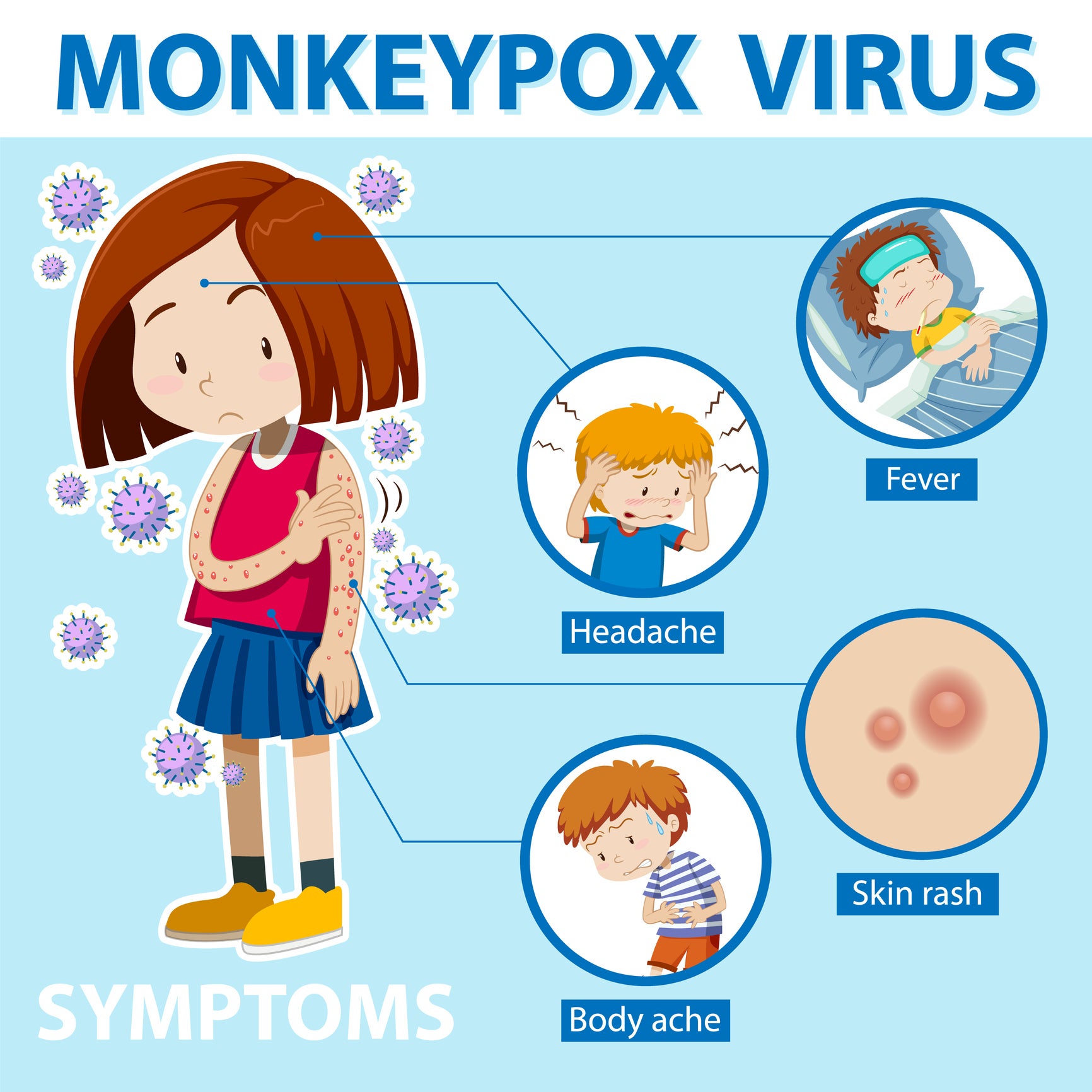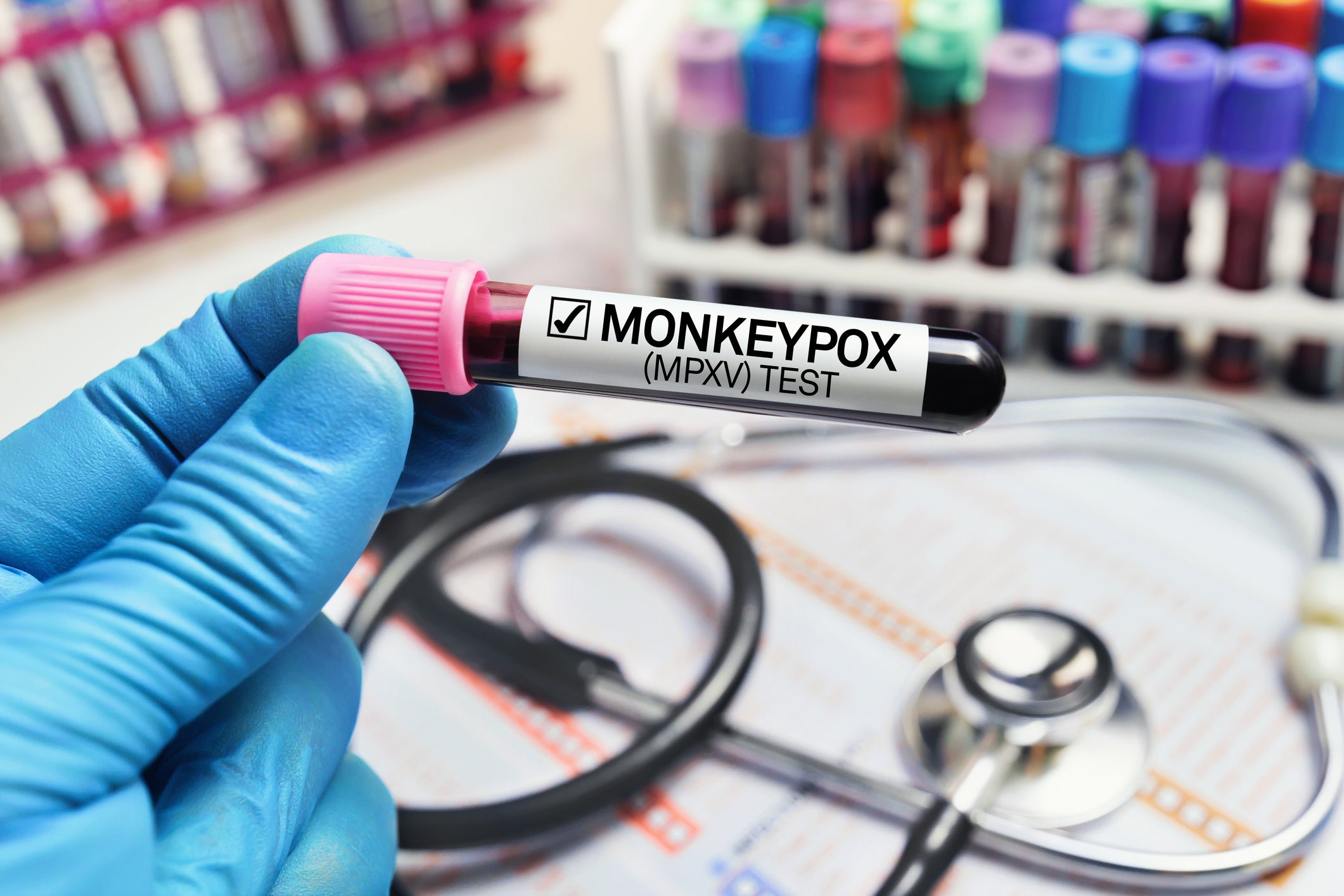The South Carolina Department of Health and Environmental Control has confirmed the first two cases of monkeypox in the Palmetto State.
The July 8 statement said one case was confirmed in the Midlands. The other was confirmed in the Lowcountry. Epidemiology staff in those regions are completing contact tracing. Individuals who were exposed to the infected individuals are being offered post exposure vaccinations.
“We understand residents have concerns about how this virus might impact our state,” said Dr. Linda Bell, State Epidemiologist. “We expected infections to eventually occur in South Carolina as part of the larger international outbreak, which is why DHEC has been planning a response for weeks. That said, monkeypox doesn’t spread easily and we believe the risk to the general population remains low at this time.”
Healthcare providers are asked to notify DHEC of any patient that they suspect may have monkeypox to receive guidance about the recommended evaluation.

Symptoms of monkeypox can begin with flu-like symptoms and swelling of lymph nodes. It usually progresses to a rash on the face and body. Most infections last two to four weeks.
Monkey pox is spread through prolonged, face-to-face contact, skin-to-skin contact including sexual activity or through exposure to contaminated materials such as clothing and linens used by an infected person. It is not as easily transmitted as SARS-CoV-2.
“This is a different virus,” said Dr. Rodger MacArthur, an infectious disease specialist at Augusta University Health. “It’s an orthopox-monkeypox virus. And it requires not just close contact, but very close contact. And it’s not in the category of influenza or SARS-CoV-2, of course, the virus that causes COVID 19. And the epidemiology of it is going to be very different.”
MORE: Georgia confirms first monkeypox case
On June 6, the Centers for Disease Control and Prevention announced Labcorp, which operates one of the largest clinical laboratory networks in the world, will begin testing for monkeypox. It will use the CDC’s orthopoxvirus test.
“The ability of commercial labs to test for monkeypox is a key pillar in our comprehensive strategy to combat this disease,” said CDC Director Dr. Rochelle Walensky. “This will not only increase testing capacity but will make it more convenient for providers and patients to access tests by using existing provider-to-lab relationships.”
Nearly 70 labs in the U.S. have been assisting the CDC with testing. The Georgia Esoteric and Molecular Laboratory at Medical College of Georgia at Augusta University is not yet part of that network. However, Dr. Ravindra Kolhe, director of the GEM Lab, said they are ready to participate if needed.
“When the numbers start increasing, and the capacity of those labs is decrease or if somebody wants a rapid answer, the CDC will put out guidance for local labs to bring this test in house and provide that testing,” he said.
The U.S. Department of Health and Human Services has launched a nationwide monkeypox vaccination strategy. The plan will vaccinate and protect those at-risk, prioritize supplying vaccines to areas with the highest number of cases and offer guidance to state, territorial, tribal and local health officials to aide their planning and response efforts.
MORE: Healthcare leaders continue to monitor the ongoing spread of monkeypox
HHS will expand access to hundreds of thousands of doses of the JYNNEOS vaccine for prophylactic use in areas with the highest transmission and need, using a tiered allocation system.
“While monkeypox poses minimal risk to most Americans, we are doing everything we can to offer vaccines to those at high-risk of contracting the virus. This new strategy allows us to maximize the supply of currently available vaccines and reach those who are most vulnerable to the current outbreak,” said HHS Secretary Xavier Becerra.
SCDHEC said anyone concerned they may have been exposed to someone with monkeypox or have a new and unusual rash should contact their healthcare provider, visit an urgent care facility or local health department office.
As of July 7, the CDC reports there have been 7,594 confirmed cases in 57 countries. There are 700 cases in the United States, with 19 in Georgia.
Dana Lynn McIntyre is a general assignment reporter for The Augusta Press. Reach her at dana@theaugustapress.com











